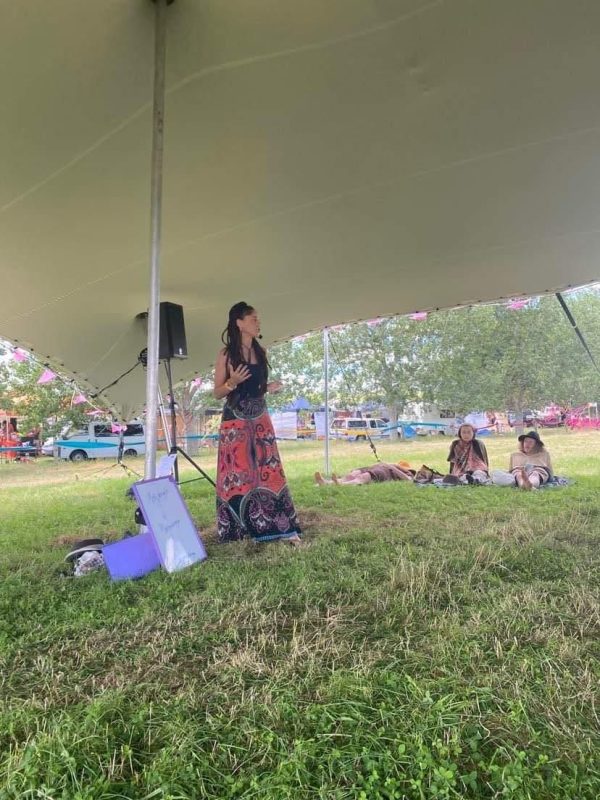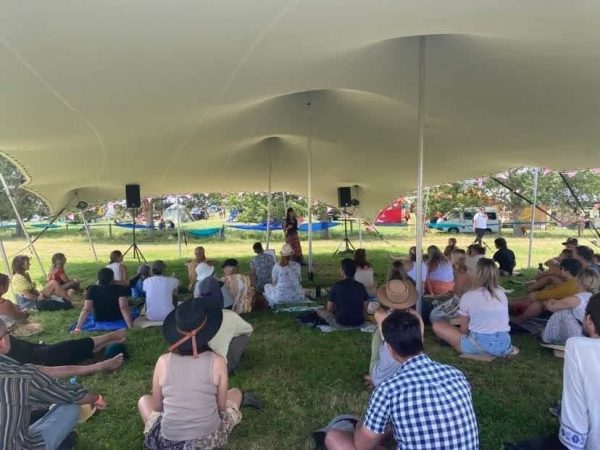Group Programmes and Workshops


“I got more out of this workshop than all the
weeks of sessions I’ve had with my therapist.”
“Great, engaging, easy to understand presenter.
I was captivated on every word…my mind never wandered once!”
“A well-structured presentation; it flowed well”
practical skills that will help me to navigate life better now”
“Thank you for being vulnerable enough to share your own story.”
The Thriving Adolescent
Conscious Parenting
Breaking the Habit of Being Yourself
The Healing Powers of Nature
Trauma Informed Trauma Sensitive Yoga
The Thriving Adolescent
(Louise Hayes and Joseph Ciarrochi)

This is a version of Acceptance and Commitment Therapy designed specifically for adolescents that is grounded in an understanding of the developmental stages of childhood and adolescence. This programme is based on the DNA-V model, with DNA standing for ‘Discoverer,’ ‘Noticer,’ and ‘Advisor.’ The V stands for Vitality. The idea is that as young people learn how to build their DNA skills, they start to experience more vitality in their life. The ‘Noticer’ and ‘Advisor’ are based on the mindfulness practices of learning how to simply observe feelings in our bodies as they arise, and observing thoughts as they arise, without any attachment to them. The name ‘Advisor’ is used because the young people learn that the thoughts they have are not necessarily the literal truth and that they can choose to follow these thoughts or simply let them go and reconnect with the present moment; they learn to differentiate between helpful and unhelpful thoughts i.e. good advice and bad advice. The advice is considered helpful if it brings them more vitality in their lives, and unhelpful if it reduces their sense of vitality. Young people are often still figuring out what their values are so their learning is based on connecting with experiences that make them feel intrinsically good; values are often developed from here. The Discoverer pertains to the young person trying new things, despite thoughts or feelings that might otherwise prevent them from doing so, and discovering for themselves if it was an action that brought more vitality into their lives or not. Enhanced ‘Noticer’ skills also relate to being able to connect to the world around us at any given moment by using our five senses. This is a skill that can help young people to get out of their minds if they are feeling trapped by thoughts, as well as to remain grounded despite whatever emotions they may be feeling; noticing the breath is also part of this practice.
Conscious Parenting

So often as a parent, we simply react automatically to our children’s behaviour yet it does not always align with who we want to be as parents. In this workshop, we begin by determining our ‘Valued Direction’ as a parent and then we look at the obstacles that get in the way of this i.e. the things that trigger our automatic reactions and lead us away from our ‘Valued Direction’. We learn about the neuroscience behind this e.g. ‘neurons that fire together, wire together’ and then learn how to use ‘mental rehearsal’ to rewire the brain and consciously choose how to respond to triggers that align more closely with our Valued Direction. This includes some mindfulness practice, as the more awareness we have of the thoughts and feelings that arise that lead to our automatic behaviour, the more able we are to slow down and respond instead of simply reacting. We also learn some ways that we can respond, with a particular focus on emotional coaching strategies, namely using a model called P.A.C.E. (Playfulness, Acceptance, Curiosity and Empathy). This enables us to support our children through their emotions by accepting whatever they are feeling (bearing in mind that this does not mean accepting their behaviour) and being curious with them about why they might be feeling this way, as well as communicating empathy for what they are feeling. This helps children to feel heard and understood which in turn helps them learn how to process their emotions better. We also look at some of the neuroscience behind this too based on ‘whole-brain integration’ (Dan Siegal). This is one of the most powerful gifts we can give our children, as they will gain a greater understanding of themselves because there is often a more vulnerable emotion beneath the expressed emotion and being able to connect with this is a skill that will serve them well throughout their lives. We also look at Relationship Repair, as there are always going to be moments when we stray from our Valued Direction and revert back to our old automatic behaviour but these moments can create the opportunity for beautiful connection to occur through mutual empathy and understanding. We also promote the importance of self-compassion and self-care.
Breaking the Habit of Being Yourself

By the time we are 35 years old, we are essentially a set of conditioned thoughts and behaviour that have been developed throughout our lifetime. It is like we are operating from an automatic computer programme running in the background 95% of the time. Our subconscious is ruling our life and we are completely unaware of it. We can learn, however, to re-programme ourselves and start to ‘break the habit of being ourselves.’ In order to do this, we need to raise our subconscious thoughts and feelings to a level of consciousness. In this workshop, we learn how to become so aware of these thoughts and feelings that we can catch them whenever they arise, and consciously choose how to respond to things instead. We clarify what is important to us and the sort of life we want to live and set this as our ‘Valued Direction.’ We then learn how to notice when these thoughts and feelings try to get in the way of this and, through the process of ‘mental rehearsal,’ we practice new ways of responding; we start to change the old computer programming and in so doing we transform our ‘personality’ into our own ‘personal reality.’ We use neuroscience to better understand the link between thoughts and feelings and how this can keep us trapped in a ‘negative feedback loop’ and what we can do to change this loop. It all begins with creating a greater level of awareness of ourselves so that when unwanted thoughts and feelings arise, we are able to notice them and respond in a way that we have rehearsed instead. We learn to become the master of our minds, instead of a slave to it.
The Healing Powers of Nature

There is a variety of research indicating that nature can act to provide psychologically restorative experiences that improve an individual’s sense of wellbeing. This is a programme that is currently under development but is based on the following findings from research into the effectiveness of nature-based programmes for healing on many levels.
– After spending time in nature, children living in heightened states of stress are better able to concentrate on tasks, control their impulses, and have a more positive mood and better social interactions.
– Interactions with nature enhance the brain’s opportunity to sustain focused attention because stimuli in the natural environment is inherently captivating. Nature also provides the opportunity for somatosensory experiences to occur, whereby more than one sense is engaged concurrently, and this is an important part of brain development, especially for traumatized children.
– Time in nature allows children who have suffered from adverse childhood experiences to begin safely exploring the world again, learning how to manage risks and developing a sense of autonomy and confidence, whilst discovering a connection with themselves and the world around them.
Disconnection is often posed as one of the main factors that contributes to poor mental health and wellbeing, where the individual is seen as separate from all else. A connection with nature, however, can facilitate a sense of ‘oneness’ with the earth, leading to a mystical feeling where we can experience ourselves as more than an individual physical being but instead part of a greater whole. This helps to transcend us beyond ego and connect us with the very essence of who we are.
Trauma Informed Trauma Sensitive Yoga
I have partnered with a qualified Trauma Informed Trauma Sensitive Yoga teacher, Helen Rose, to provide this group therapy for those who have a current claim with ACC and are entitled to access this support. These classes support clients in regulating their central nervous system through movement, breath awareness, self-regulation and self-care practices. This approach is designed to restore the mind-body connection body and to cultivate a felt sense of agency. This approach was founded by Dr. Bessel van der Kolk, an internationally recognised leader in the field of psychological trauma. For further information, please refer to PATHWAYS TO EMBODIED HEALING | The Loft Studio – Yoga Classes and Workshops – Whangarei.
Costs and Bookings
To be determined based on the type of workshop delivered
